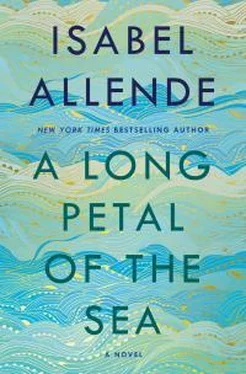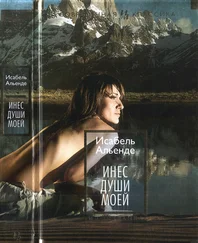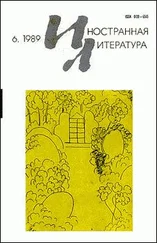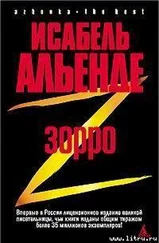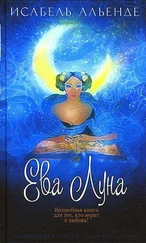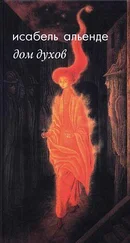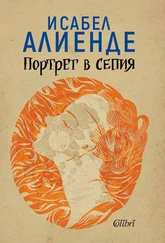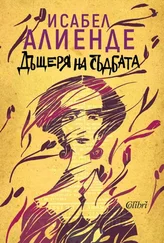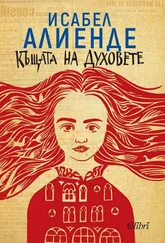Victor was to see Neruda again thirteen months later, when, together with two friends, he had to organize the poet’s flight on horseback through Andean mountain passes and into Argentina. For months Neruda, unrecognizable with his heavy beard, had hidden in the houses of friends and party comrades, with the police hot on his heels. Just as with Neruda’s poetry, this journey to the frontier left an indelible impression on Victor. They rode through the magnificent scenery of cold forests, age-old trees, mountains, and water: water everywhere, flowing down in hidden streams among ancient trunks, cascading from the sky, sweeping everything away in turbulent rivers the travelers had to cross, their hearts racing. Many years later, Neruda recalled that crossing in his memoirs: Each one moved along, intoxicated by that boundless solitude, by that green and white silence. It was all the dazzling and secretive work of nature, and at the same time a growing threat of cold, snow, and pursuit.
Victor said goodbye to him at the border, where gauchos were waiting for him with spare horses to continue the journey. “Governments come and go, but poets remain, Don Pablo. You’ll return in glory and majesty. Remember my words,” he said, hugging him.
Neruda managed to get out of Buenos Aires using the passport of Miguel Angel Asturias, the great Guatemalan novelist with whom he shared a certain physical resemblance: they were both long-nosed, with plenty to spare in face and body . In Paris he was greeted as a brother by Pablo Picasso and feted at the World Congress of Partisans for Peace.
The Chilean government meanwhile told the press that this man was an impostor, Neruda’s double; the real one was in Chile, and the police knew where he was.
—
ON MARCEL DALMAU BRUGUERA’S tenth birthday, a letter arrived from his grandmother Carme. It had traveled halfway around the world before finally reaching its recipient. His parents had told him about her, but he had never seen a photograph, and the stories about his legendary family in Spain were so distant from his reality that he put them in the same category as the make-believe horror and fantasy novels he collected. At that age, he refused to speak Catalan, only doing so with old Jordi Moline at the Winnipeg tavern. With the rest of humanity he spoke Spanish with an exaggerated Chilean accent and vulgar expressions that often earned him resounding slaps from his mother. Apart from this oddity, he was an ideal child, taking charge of his schooling, transport, clothes, also often his food, and even making his own appointments at the dentist and barber. He was like an adult in short trousers.
Returning from school that day, Marcel picked up the mail from the box, separated his weekly magazine of aliens and the wonders of nature, and left the rest on the hall table. He was accustomed to finding the house empty. As his parents worked unpredictable hours, they had given him the house key at the age of five, and he had traveled alone on trams and buses since he was six. He was bony and tall with well-defined features, his black eyes had an absorbed expression, and his stiff straight hair was kept in place with brilliantine. Apart from his tango-singer hairstyle, he imitated Victor Dalmau’s measured gestures and his tendency to say little and avoid giving details. He knew Victor wasn’t his father but his uncle, but this information was as irrelevant as the legend of that grandmother of his who had gotten off a motorcycle in the middle of the night and became lost in the midst of a despairing throng.
First Roser arrived with a birthday cake, and then Victor. He had been on duty at the hospital for thirty hours, but hadn’t forgotten to bring Marcel the present he had been longing for over the last three years. “It’s a professional telescope, like the ones grown-ups use. It’ll last you until you get married,” Victor joked, giving him a hug. He was more demonstrably affectionate than the boy’s mother, and a much softer touch. It was impossible to get around her, but Marcel knew a dozen tricks to get his own way with Victor.
After having supper and sharing the cake, Marcel brought the mail into the kitchen. “Well! It’s from Felipe del Solar. I haven’t seen him in months,” exclaimed Victor when he saw the sender’s name. It was a large envelope with the stamp of the del Solar law firm. Inside was a note saying it was time they met for lunch one of these days, and apologizing for the delay in sending the attached letter, which had arrived at his former home after being sent one place and another until it reached him, because he now lived in an apartment opposite the golf club. A minute later, Roser and Marcel were startled to hear Victor give a loud shout: they had never heard him raise his voice before. “It’s Mother! She’s alive!” he said, breaking into sobs.
Marcel wasn’t really interested in the news. He would have preferred one of his aliens to materialize rather than his grandmother, but he changed his mind when they told him about their trip. From then on, everything was a matter of preparing to travel to meet Carme: letters that came and went without waiting for any reply; telegrams crossing in midair; freeing up Roser’s timetable of classes and concerts and Victor’s work at the hospital. Neither of them was concerned about Marcel missing months at school if need be; his resurrected grandmother was more important.
They traveled on a Peruvian airline, making five stops before they reached New York. From there they took a boat to France, a train from Paris to Toulouse, and finally arrived in the Principality of Andorra on board a bus that climbed a road that slithered like a weasel among the mountains. None of them had flown before, and the experience served to reveal the only weakness they ever discovered in Roser: her terror of heights. In her everyday life, when she had to go out onto a balcony on a top floor, for example, she disguised her vertigo with the same stoicism that she used to put up with any aches or pains or the struggle to get by. “Clench your teeth and carry on without fuss” was her motto, but in the plane her nerves and equanimity deserted her. Her husband and son had to hold her hands, comfort her, distract her attention, support her head whenever she was sick during the countless hours in the air. At each stopover they almost had to carry her, because she could hardly walk. When they reached Lima from Antofagasta on the second stage of their odyssey, Victor thought she looked so ill he decided to send her back home overland and continue on his own with Marcel. Roser confronted him with her usual determination. “I’ll fly to hell itself if necessary,” she said, and reached New York quivering with fear and still vomiting in the paper airsickness bags. In fact, she was preparing herself, as she knew she was going to have to travel by air in the future if the project of the Ancient Music Orchestra that she was planning ever came to fruition.
Carme was waiting for them at Andorra la Vella bus station, sitting ramrod-stiff on a bench, smoking as ever. She was dressed in mourning for the dead, for those lost, and for Spain, wearing an absurd hat, and with a bag on her lap out of which poked the head of a little white dog.
The three adults had no difficulty recognizing one another, because none of them had changed a great deal over the ten years they had been apart. Roser was the same as before, although she had adopted a style suited to her position; Carme found herself slightly intimidated by this confident, well-dressed woman wearing makeup. She had last seen her on a terrible night, when she was pregnant, exhausted, and shivering with cold in a motorcycle sidecar. The only one reduced to tears of emotion was Victor; the two women greeted each other with a kiss on the cheek, as though they had seen each other the day before, and as if the war and exile had been insignificant episodes in their otherwise tranquil existences.
Читать дальше
